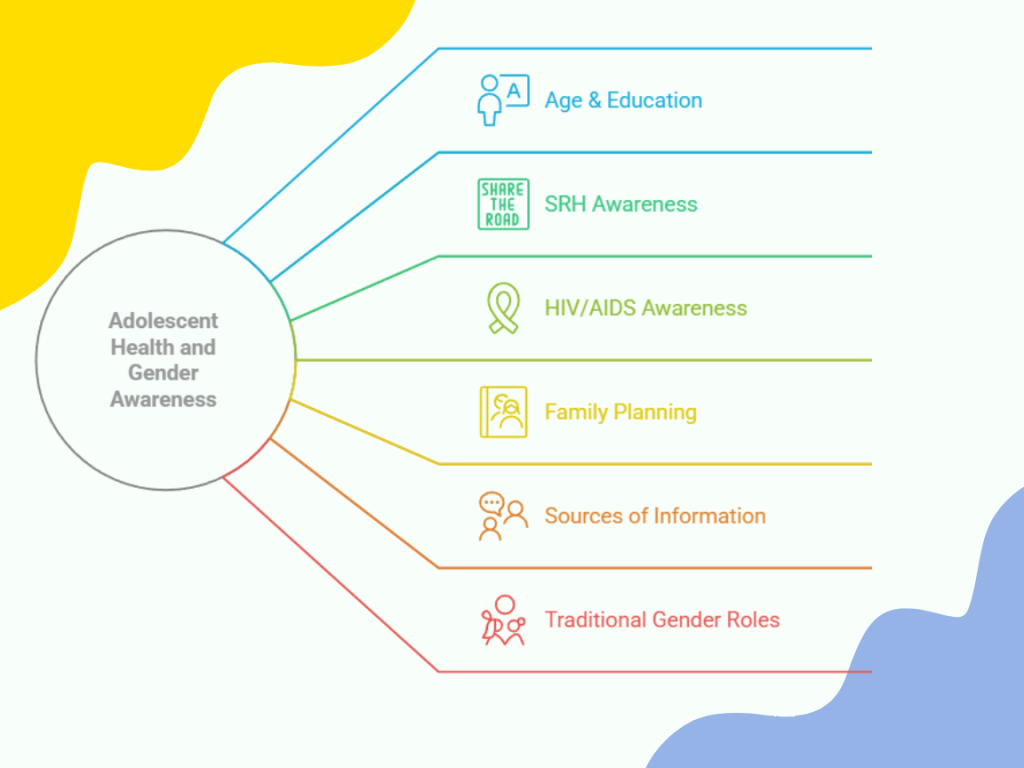
We are excited to share the findings of a recent study titled “Adolescent Boys’ Perspectives on Reproductive Health and Gender Dynamics: A Study in Rural Rangpur District, Bangladesh,” published by Fortune Journals. This research, led by Md. Maksud-ul Hasan, Chairman of the ART Lab, explores the knowledge, attitudes, and perceptions of adolescent boys (aged 13-18) regarding reproductive health (SRH) and gender dynamics in rural areas of Rangpur District, Bangladesh.
The Importance of Reproductive Health Education for Adolescents
Adolescence is a critical period for sexual and reproductive health (SRH) education. As young individuals begin to navigate complex changes in their bodies and minds, they need access to accurate information and guidance to make informed decisions about their health. In rural Bangladesh, however, adolescents often face significant barriers to obtaining reliable and comprehensive SRH education. This research aims to bridge those gaps by investigating the perspectives of adolescent boys on these important issues.
Study Overview
The study, conducted between October and December 2023, used a multistage stratified random sampling method to collect data from 336 adolescent boys across six sub-districts in Rangpur District. The participants ranged in age from 13 to 18 years old, with most falling between the ages of 14 and 16 (61.7%). The study focused on their awareness and understanding of key SRH topics, including menstruation, HIV/AIDS, sexually transmitted infections (STIs), family planning, and gender dynamics.
Key Findings from the Study
1. Awareness of Menstruation and Reproductive Health
While 70.2% of the participants reported being aware of menstruation, 15.2% were uninformed about this critical aspect of reproductive health. This highlights a significant gap in SRH education, especially for boys, who may not receive adequate information about topics traditionally associated with women’s health.
2. HIV/AIDS Awareness
The study found a high level of awareness regarding HIV/AIDS, with 91.7% of participants being familiar with the disease. This is a promising sign that efforts to increase HIV/AIDS awareness in the region may have been effective. However, it also points to the need for continued education to reinforce this knowledge and address misconceptions.
3. Knowledge of Family Planning Methods
A total of 81% of the participants were aware of modern family planning methods, with the most commonly recognized methods being pills and injectables. However, awareness of intrauterine devices (IUDs) and Copper T was comparatively lower. This indicates that there is room for improvement in educating adolescents about the full range of family planning options.
4. Sources of Information
Friends (26.8%) and health service providers (22.9%) were the primary sources of SRH information for the boys. Community clinics (66.1%) and family welfare centers (23.8%) were the main locations where they accessed this information. Doctors were the most common health professionals providing advice (40.5%), while over 60% of the boys reported encountering SRH posters in healthcare facilities. These findings underscore the importance of accessible and reliable information channels for young people.
5. Gender Roles and Expectations
Despite the increasing flow of information about reproductive health, traditional gender roles remain deeply entrenched. Over 60% of participants believed it was unusual for a woman to leave the house without her husband’s permission, illustrating the persistence of conservative views on gender dynamics in rural areas.
6. Educational Attainment and Knowledge
The study also found that adolescents with higher educational attainment (specifically, those in grades 10-11) had significantly better knowledge of HIV/AIDS and STIs. This highlights the potential of education as a tool for improving SRH knowledge and breaking down misconceptions.
Conclusions and Implications for Policy and Practice
The findings from this study reveal significant gaps in sexual and reproductive health education for adolescent boys in rural Bangladesh. While there is some awareness of key topics like HIV/AIDS and family planning, much work remains to ensure that all adolescents have access to comprehensive and accurate SRH information. This is especially important in rural areas where educational resources may be limited.
The study calls for a multi-faceted approach to addressing these gaps, including:
- Comprehensive SRH Education: Schools and community programs should offer tailored SRH education that covers both reproductive health and gender dynamics. Boys, in particular, need more opportunities to learn about menstruation, STIs, family planning, and the broader aspects of sexual health.
- Addressing Gender Dynamics: Interventions are needed to challenge traditional gender roles and encourage more equitable views on gender relations. Addressing these issues will help to foster a more inclusive and progressive society where both boys and girls can make informed decisions about their health and well-being.
- Expanding Access to Health Services: The study highlights the role of health service providers and community clinics in disseminating SRH information. Efforts should be made to strengthen these services and ensure that young people have easy access to reliable, age-appropriate information.
- Integration of Family Planning into STI Prevention: The findings suggest that knowledge of STIs is closely linked to awareness of family planning methods. Integrating these two areas into a cohesive educational approach will help adolescents make informed decisions about their sexual health.
Moving Forward
This study serves as a critical reminder of the need for improved SRH education in rural Bangladesh, particularly for adolescent boys. By addressing the educational gaps and promoting gender equality, we can help young people make informed, responsible decisions about their health. It is essential for policymakers, educators, and health professionals to work together to create an environment where adolescents have the knowledge and support they need to navigate their sexual and reproductive health with confidence.
Read the full study: https://shorturl.at/BqHS0

